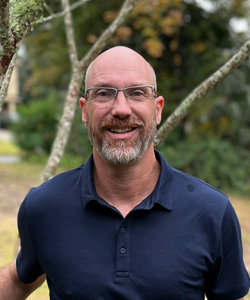Fred Moten at Silo City
“Poetry is a musical accident.” Fred Moten reads a selection of poems that appear in his collection The Little Edges (Wesleyan University Press, 2016) for this 2024 Silo City Reading series event with musician Brandon Lopez.
Jump to navigation Skip to content
“Poetry is a musical accident.” Fred Moten reads a selection of poems that appear in his collection The Little Edges (Wesleyan University Press, 2016) for this 2024 Silo City Reading series event with musician Brandon Lopez.
Did you know that the word robust comes from the Latin word robur meaning “oak tree?” Merriam-Webster’s “12 Words Whose History Will Surprise You” provides the fascinating etymological history of words such as boudoir, phlegm, amethyst, and assassin, essentially mini lessons demonstrating an English word’s linguistic origins from an assortment of languages, including Medieval Latin, Greek, Arabic, French, and Middle English. Jot down a list of some of your favorite nouns, verbs, and adjectives, and look up their origin stories. (Tip: Merriam-Webster often lists a word’s etymology in the “Word History” section.) Write a poem inspired by this newly discovered and intriguing story behind the language, incorporating past iterations of the word into your verse.
Lise Goett reads from her third poetry collection, The Radiant (Tupelo Press, 2024), in this Jules’ Poetry Playhouse virtual reading with Mark Wunderlich hosted by Jules Nyquist and John Roche. The Radiant is featured in Page One in the January/February issue of Poets & Writers Magazine.
Poets & Writers Magazine features editor India Lena González hosts this two-part event celebrating the ten debut poets featured in “The Luminous Life: Our Twentieth Annual Look at Debut Poets” from our January/February 2025 issue. The virtual event includes readings from the poets, as well as conversations about their debut books, their influences and inspirations, and their individual paths to publication.
Edges of Ailey is an immersive exhibition at the Whitney Museum of American Art centered around the twentieth-century choreographer, dancer, and artist who founded the Alvin Ailey American Dance Theater. The show spotlights multimedia presentations of Ailey’s work, recorded footage, notebooks and drawings, as well as works that inspired Ailey and have been inspired by him in the forms of literature, music, and visual art. Write a poem centered on movements of the body, whether a creative motion like a dance move or the everyday, repetitive motion of carrying out a task. Allow yourself the freedom to experiment with page space—choosing different sizes or styles of script, incorporating small drawings or cutouts—to create a collage-like piece.
In this Harvard Radcliffe Institute event, Ilya Kaminsky reads a selection of poems from his collection Deaf Republic (Graywolf Press, 2019), including “We Lived Happily During the War” and “While the Child Sleeps, Sonya Undresses,” and discusses being an immigrant and poet in between languages in a conversation with Stephanie Sandler.
“Some things, then, cannot be repaired and must go on, into a kind of dusk that seems somehow endless,” reads Matthew Nienow from his poem “Dusk Loop,” which appears in his second poetry collection, If Nothing (Alice James Books, 2025), in this reading and conversation for the Table For Deuce podcast hosted by poets Kate Hanson Foster and Michael Schmeltzer. Nienow’s collection is featured in Page One in the January/February issue of Poets & Writers Magazine.
In a Sight and Sound magazine interview from last November, filmmaker David Lynch, who passed away earlier this month, was asked about the inspiration for his latest album with longtime collaborator Chrystabell. Publicity materials for the album described how Lynch experienced a mysterious, revelatory vision while out for a nighttime walk in the woods. In the interview, Lynch admits this revelation isn’t quite what happened, but that he does “walk in the woods in my mind.” Jot down notes about the type of atmosphere, shape, mystery, or emotions you associate with a walk in the woods, and how might you “walk in your mind.” Allow your imagination to wander freely into any shadowy corners. Then, compose a poem that results from this creative exercise.

“Don’t worry about aesthetic categories or limitations. Have fun.” —Jonathan Fink, author of Don’t Do It—We Love You, My Heart?
Hala Alyan reads her poem “Light Ghazal,” which appears in her fifth poetry collection, The Moon That Turns You Back (Ecco, 2024), in this short film directed by Jake McAfee and produced by the Adrian Brinkerhoff Poetry Foundation, in collaboration with the Academy of American Poets, for their Read By poetry film series.